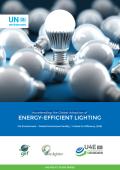
Lighting is widely used in everyday life. It is a significant factor contributing to our quality of life and productivity of our workforces. Artificial illumination extends the productive day, enabling people to work in homes, offices, buildings and factories. Lighting equipment, however, consumes resources. It does so in the manufacturing phase and, more importantly, when installed and operating (i.e. producing light). As our economies grow and populations expand, the global demand for lighting will increase. This period of technology transition from old to new products is an opportunity to governments. They can introduce cost-effective policy measures across all lighting applications yielding substantial savings and accelerating the adoption of LED-based lighting.
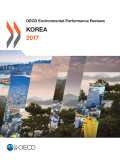
OECD Environmental Performance Reviews provide independent assessments of countries’ progress towards their environmental policy objectives. Reviews promote peer learning, enhance government accountability, and provide targeted recommendations aimed at improving environmental performance, individually and collectively. They are supported by a broad range of economic and environmental data, and evidence-based analysis. Each cycle of Environmental Performance Reviews covers all OECD countries and selected partner economies.
This report is the third Environmental Performance Review of Korea. It evaluates progress towards sustainable development and green growth, with a focus on waste and materials management, and environmental justice.
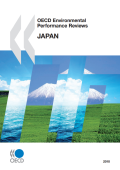
This 2010 review of Japan's environmental conditions and policies evaluates progress in reducing the pollution burden, improving natural resource management, integrating environmental and economic policies, and strengthening international co-operation. It includes coverage of policy for greening growth, implementation of environmental policies, climate change, waste management and the 3Rs (reduce, reuse, recycle), and nature and biodiversity.
The review finds that since the last review, Japan has made steady progress in addressing a range of environmental issues, notably air and water pollution, and the management of chemicals and waste. The energy intensity of the economy has continued to decrease, particularly in the industrial sector, and is among the lowest in OECD countries. Material intensity has also decreased.
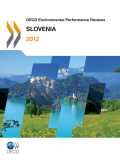
This first review of Slovenia's environmental conditions and policies evaluates progress in sustainable development, improving natural resource management, integrating environmental and economic policies, and strengthening international co-operation. It addresses green growth, environmental management, climate change and air pollution, and waste management issues.
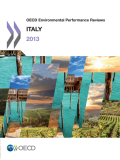
The OECD Environmental Performance Review Programme provides independent assessments of countries’ progress in achieving their domestic and international environmental policy commitments, together with policy relevant recommendations. They are conducted to promote peer learning, to enhance countries’ accountability to each other and to the public, and to improve governments’ environmental performance, individually and collectively. The Reviews are supported by a broad range of economic and environmental data. Each cycle of the Environmental Performance Reviews covers all OECD member countries and selected partner countries.
This report is the third OECD review of Italy’s environmental performance. It evaluates progress towards sustainable development and green growth, with a focus on policies that promote more effective and efficient water management and provide better incentives to tackle climate change.
